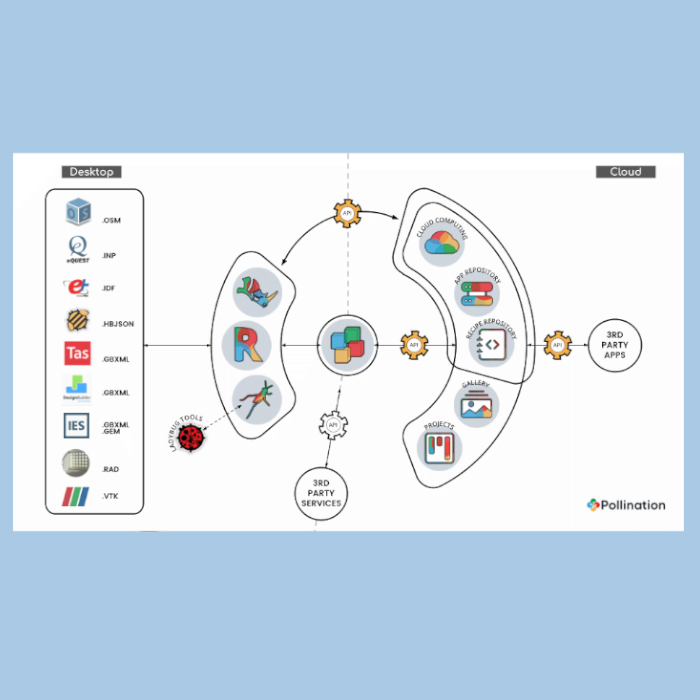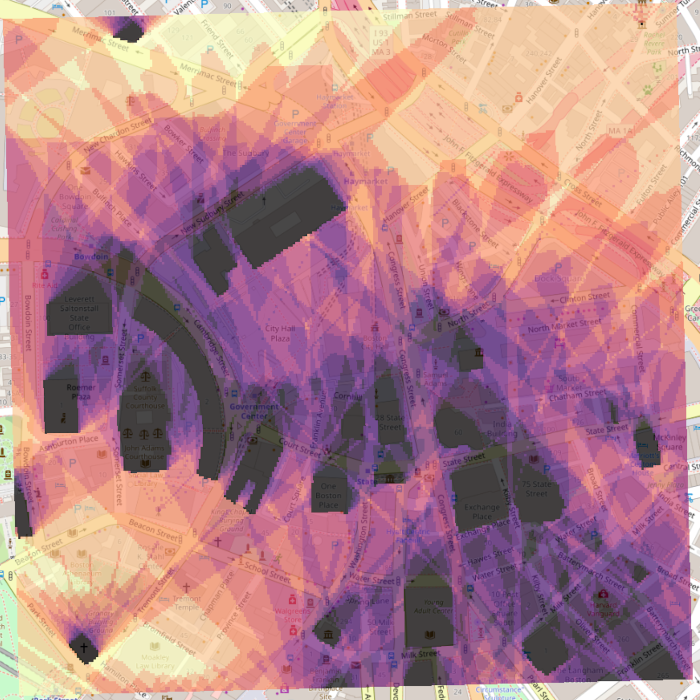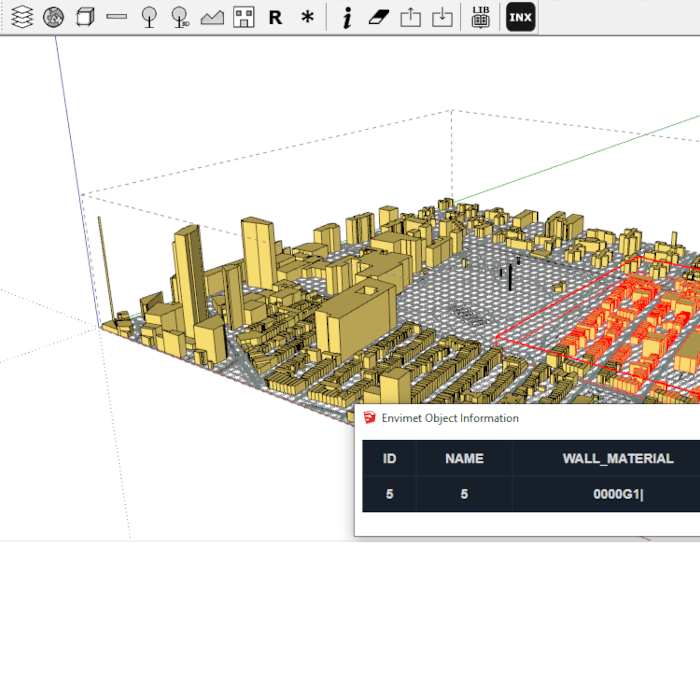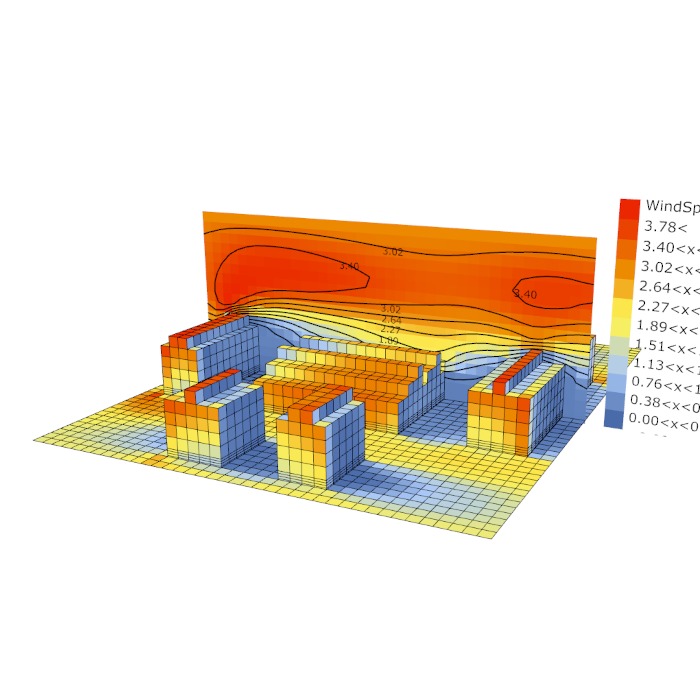Pollination Cloud
Year and involvement: 2021-present
Main programming language: C#, Python, Ruby, Typescript
Pollination is the complete building performance simulation platform that helps you generate models, run simulations, and deliver trustworthy results.
And not only, it is also a development platform thanks to many libraries which it offers.
I am involved as application developer and partially as frontend developer of this great project.
UTCI Calculator
Year and deployment: 2020
Programming language: HTML5, Bootstrap 4, VanillaJS
A simple static page to learn how the UTCI index works.
UTCI (Universal Thermal Climate Index) is an index that express temperature of what the weather "feels like".
ShrimpGIS for Grasshopper
Year of the first deployment: 2020
Programming language: Python
It is a small and easy to use open-source Grasshopper plugin able to read and write ERSI shapefile and geojson based on WGS84 reference system.
It has few and clear functionalities accessible to every level of expertise of Grasshopper/GIS. You can combine it with Ladybug and QGIS.
It uses a custom external library written in Python and you can find it on
Food4rhino.
Envimet INX for Sketchup
Year of the first deployment: 2019
Programming language: Ruby
It is an open-source plugin for Sketchup Pro to create Envimet 2.5D Model files (INX).
It command-based and it uses Ruby language. This was occasion to apply a new idea of OOP for Envimet entities: divide calculation in chunks.
You can find latest version on Sketchup Extension Warehouse.
This project is financed by ENVI-Met GmbH.
Morpho
Year of the first deployment: 2020
Programming language: C# and Python
A plugin to create Envimet 2.5D and 3D models (INX), write configuration files (SIMX) and run simulation. It is written with C#.
It is based on following projects: lb_envimet, df_envimet and Envimet INX. It contains a library of classes you can use with Grasshopper, Dynamo and other softwares.
- Settings of Workspace, project and model
- Modeling of envimet entities for 2.5D or 3D INX. Such as Buildings, Plant2D and Soils
- Reading materials from system DB, project DB and user DB
- Settings of simulation file (SIMX) with more than 15 advanced settings. Both Simpleforcing and Fullforcing supported.
- Running envimet simulation
This project is partially financed by ENVI-Met GmbH.
df_envimet for Grasshopper
Year of the first deployment: 2018
Programming language: C#
df_envimet is a project for Grasshopper based on lb_envimet.
It can create Envimet 3D models (INX), simulation files and read almost all results among building and grid ones
It uses C# and it is compiled as *.gha to simplify its delivery.
It is current and official version you can find in Dragonfly Legacy of Ladybug Tools.
This project is financed by ENVI-Met GmbH.
lb_envimet for Grasshopper
Year of the first deployment: 2016
Programming language: Python
lb_envimet is a project for Grasshopper that I started when I joined Ladybug development team (2016). I made a series of components to connect Ladybug and Gismo to Envimet for urban microclimatic analysis. It can create Envimet 3D models (INX), simulation files and read some results. It is based on Python and it is still available on GitHub, but it require maintenance.
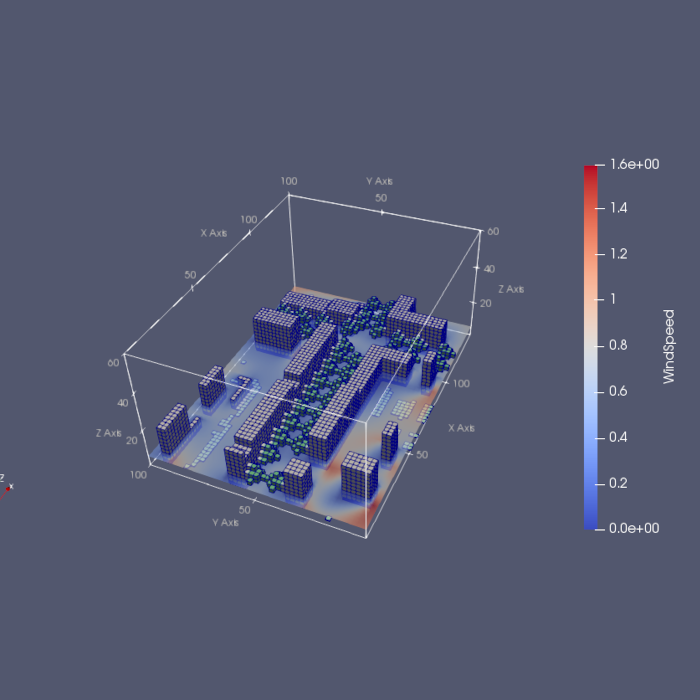
NetCDF exporter for ENVI-Met
Year of the first deployment: 2018
Programming language: Python
I developed the first NetCDF converter for ENVI-Met software. It lets the user convert all simulation outputs after a simulation is run. This offers the possibility for the users to visualize the
three-dimensional data using their preferred visualization tool e.g. Paraview.
It was replaced with a new improved version written directly into ENVI-Met core software and developed directly by Envimet team.
This project was financed by ENVI-Met GmbH.
